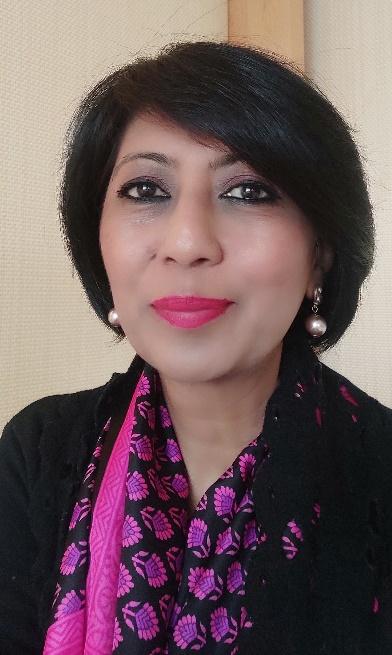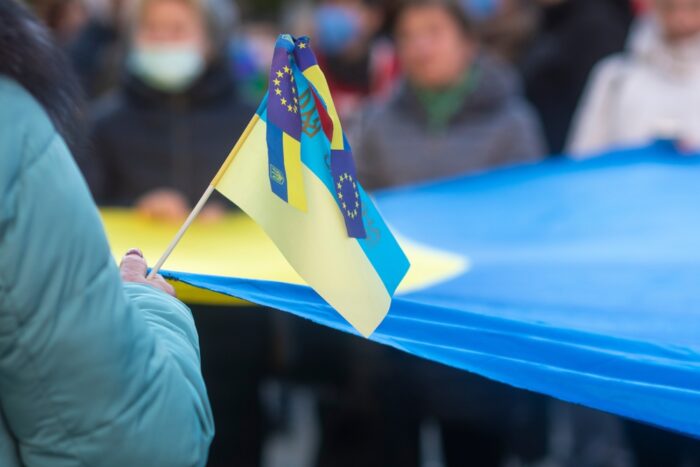The Progressive Post
India’s G20 leadership: navigating a divided world and bridging the gap

As the countdown to the 18th G20 summit in India (9-10 September) begins, the capital New Delhi already wears a festive look to host the large summit. Born out of the 1997-1998 global financial crisis, the G20 consists of Argentina, Australia, Brazil, Canada, China, France, Germany, India, Indonesia, Italy, South Korea, Japan, Mexico, Russia, Saudi Arabia, Turkey, the United Kingdom, the United States and the European Union. Other invitees include Spain, the World Bank, the IMF, the African Union and ASEAN. The G20 stands for shared international responsibility in a deeply interdependent world to address economic problems. Since 2008, it has had an annual leaders’ summit, bringing to a culmination a yearlong series of initiatives to enhance cooperation and coordination of economic policies.
The collective G20 geopolitical and geoeconomic weight is evident by the statistics – its members represent 85 per cent of the global GDP, 75 per cent of international trade and two thirds of the world’s population. The current G20 summit comes against the backdrop of the return to a post-pandemic world still beset by major economic challenges, the continuing war in Ukraine and evidence of the slowing down of the Chinese economy that can produce a global economic tsunami. What further exacerbates cooperation and coordination at the multilateral level is the heightened geopolitical and geo-economic contestation that has led to deep cleavages and distrust among states and a growing predisposition towards strategic hedging and band-wagoning for short-term benefits. Clearly, the key word is political uncertainty, as every multilateral framework has come face to face with internal dissensions and an increasing inability to deliver global public goods.
India’s G20 priorities and presidency – One Earth, One Family, One Future
India’s theme of its G20 presidency is ‘Vasudhaiva Kutumbakam‘, (which is drawn from the ancient Sanskrit text of the Maha Upanishad), meaning ‘One Earth, One Family, One Future. It highlights the inter-connected world and is broken down into the following six priorities: green development, climate finance and LiFE (Lifestyle for Environment), an accelerated, inclusive and resilient growth and enhancing progress on the Sustainable Development Goals. The Indian Way, as India’s Foreign Minister Subrahmanyam Jaishankar has indicated, has three components: to understand the global environment, set priorities and get things done.
India’s approach to the G20 has been one of inclusion and broad representation not only in the domestic context but also in its external engagement. In order to emphasise a truly pan-Indian contribution that was not centred in the country’s capital and has a contribution from the country’s federal states, India has held over 220 meetings across 60 cities, in an attempt to also showcase the country’s regional and cultural diversity. In the run-up to the summit, Prime Minister Narendra Modi, emphasised that, “India and India’s G20 will act as a catalytic agent for the new global order” that is inclusive, representative and human-centric. Enhancing the formal interactions were ten engagement groups consisting of civil society, parliamentarians, think tanks, women, youth, labour, businesses and researchers from the G20 countries that also contributed to the discussions and solutions.
In a big step to create inclusive participation for the developing countries, India is the only G20 country to have also hosted the Voice of the Global South Summit in January 2023 with the theme ‘Unity of voice, Unity of purpose’. It was driven by Prime Minister Modi’s vision ‘together with everyone for development, trust and effort’. Bringing 125 countries of the Global South together for the first time in the G20 framework, it aimed at giving a genuine voice to the developing world that has been more adversely affected by global developments and sought to create a platform for the exchange of ideas and solutions. India has sought to represent the collective concerns of the Global South through this effort, which not only emphasises inclusion but also simultaneously sends a strong message to China. Obviously, a one-time summit by India is not considered a match to the Chinese financial power, capability and capacity launched through its Belt and Road Initiative (BRI) and its Global Development Initiative. However, many countries participating in the BRI have been caught in a debt trap, raising concerns about sustainability and the growing Chinese influence and penetration into their respective political systems.
In stark contrast to the Chinese model, the Indian government is trying to change the West and the Global South’s perception of India and has the ambition to act as a bridge between North and South. At the international level, since 2020, India has been engaging and checking Chinese military action on the border, a fact not many are acquainted with in the West. At the domestic level, the IMF recently acknowledged that India has developed world-class Digital Public Infrastructure, creating a digital backbone for the delivery of services across the country that was critical during the pandemic, making its digital journey a model for the Global South. Finally, India’s successful moon and sun missions a few weeks before the G20 summit, underscores its scientific development as a new technology partner for the Global South.
New Delhi summit: expectations and the G20 today
India’s leadership of the G20 group comes at a time when deep geopolitical and geo-economic divisions between countries have created additional international fault lines. Despite India’s neutral stand to the Ukraine war, which brought disbelief from the West, it has also presented New Delhi with an opportunity to use the G20 platform to build cooperation between members, although the ability to forge a consensus has been elusive since the G20 summit in 2022 in Indonesia. For the 2023 summit in India, there are numerous influencing factors that can create very different political outcomes. In the runup to the summit, the Chinese issued a new map with respect to India and other countries in the region that claimed parts of India and of other neighbouring countries’ territory as their own. Clearly, with the timing of the action, Beijing’s intention was to create more diversion, friction and political discord with New Delhi and rob India of the moment of diplomatic success.
In addition, the dateline to the summit has already had two opt-outs with the Russian and Chinese Presidents Vladimir Putin and Xi Jinping not participating. With the Ukraine war still being a divisive point, if the efforts towards a joint communique fail, one would be left with the chair’s summary and an outcome document. Equally significant, if not more, is Prime Minister Narendra Modi’s bilateral meeting with US President Joe Biden in New Delhi. Through this, the US acknowledges the growing weight of India as the fifth largest global economy and gives a strong endorsement of India as a close strategic partner.
The G20 Summit comes on the heels of the BRICS Summit in Johannesburg and the ASEAN and East Asia Summit in Jakarta, drawing attention to the opportunities for cooperation among states which the participation in these groups allow, and to the chances that such collective actions offer to boost leadership. There is a new demand for diplomacy and negotiations as the political disequilibrium within many multilateral institutions is visible. While the global disruptions are many, the solutions are few and they need to be inclusive and sustainable. In this context, multilateral institutions and their performance, climate change financing, how countries manage climate change and their ability to meet the SDG goals will be important issues included in the outcome document of the New Delhi summit.
The growing geopolitical and geo-economic tensions in the last years underscore that the world is at a new inflexion point. Against this backdrop, as Foreign Minister Jaishankar said, the Global South is becoming part of the global lexicon. This is evident as the baton of the G20 since the 2022 summit in Indonesia, has moved in 2023 to India and will then move to Brazil in 2024 and to South Africa in 2025, creating a new line of leadership from within the Global South. In a series of firsts, India, Brazil and South Africa, as a united group (IBSA), will lead the G20. The G20 is therefore being chaired with a different leadership mindset that stems from the respective political experiences of the ISBA countries. Experiences that come from the Global South and not from the West. This is a remarkable achievement for this multilateral group. The G20 is witnessing a different mindset to leadership that is embedded in the respective historical political experiences of the IBSA that is not from the West, but from the Global South.
Photocredits: European Union, 2023




